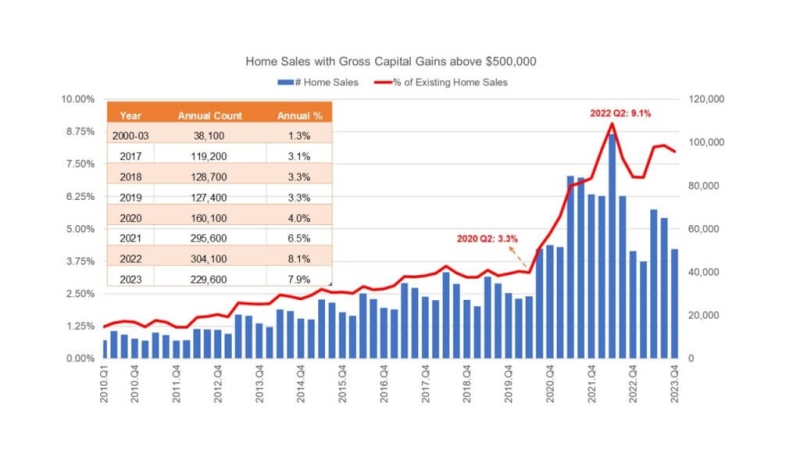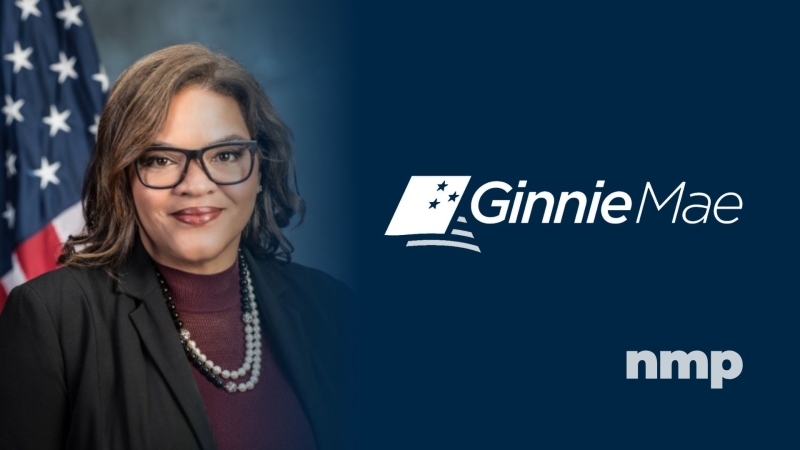Advertisement
Decision One products aid first-time borrowers
Marketing and market savvy: Your tools for emerging market successFran Clemensemerging market needs, education, relationship marketing
Emerging markets represent a significant opportunity for
mortgage brokers. In fact, according to a recent national housing
survey completed by Fannie Mae, first-time and ethnically diverse
homebuyers represent the fastest growing group of borrowers in the
U.S. Fannie Mae's survey indicates that 57 percent of all renters
say they are very or somewhat likely to buy a home in the next
three years. Furthermore, 63 percent of African American renters
and roughly 61 percent of Hispanic renters say that they are very
or somewhat likely to buy a home in the next three years. When they
do eventually buy, many, if not all, will be first-time
homebuyers.
To put the size of this pool of potential customers into
context, consider that according to the 2000 U.S. Census, a third
of all Americans rent their housing and 15 percent of all U.S.
households live in an apartment home. Renters, especially those in
emerging market segments, not only represent a vast pool of
potential sales targets, but are most likely already residing
within your existing sales region. In the 10 most populated cities
in the U.S., roughly 50 percent of residents rent their home.
Converting renters into homeowners does require work, but it's
an investment of time, energy and resources that will deliver a
significant return-on-investment. With the right combination of
marketing and market savvy, mortgage brokers can build a very
successful emerging market book of business that will boost their
market share and generate many additional sales leads and
referrals.
The first rule of marketing: Know your
audience
To effectively capture emerging markets business, brokers must
understand the unique concerns of ethnically diverse borrowers and
respond to those concerns accordingly. Consumers who have never
purchased a home, especially immigrants, have many mortgage
misconceptions. Fannie Mae's national housing survey indicated
specific concerns that a large percentage of first-time and
immigrant borrowers have with the mortgage process:
•A borrower is required to have been with their current
employer for five years
•A minimum down payment of 20 percent is required
•Only borrowers with perfect credit are approved for
traditional loan products
•Housing lenders are required by law to give them the best
rate available
•Mortgage brokers will always give borrowers a better deal
than the local bank
The best research is only valuable when it is related to your
own selling goals. Certainly, the results of Fannie Mae's survey
are helpful to know, but how do the mortgage process misconceptions
manifest themselves in your local home buying community?
Luckily for mortgage brokers, the very same real estate agents
with whom they routinely work can also identify local emerging
market needs and more local misconceptions. Many of these real
estate agent's associates actually devote 100 percent of their time
to working with immigrant and ethnically diverse consumers. Next
time you call on your local real estate agent, ask what they are
experiencing in their own business regarding first-time, minority
or immigrant homebuying trends. Inquire if any of their coworkers
are working with this market segment, and ask for an introduction.
To effectively capture purchase market business and become known in
your area as the emerging markets expert, use the time that you
normally spend courting real estate agents as a discovery and
educational opportunity with them.
Education is key to emerging markets
success
Knowing the issues on the mind of nervous borrowers is half the
battle. To secure their business, however, mortgage brokers must
offer borrowers educational resources that work to dispel mortgage
misconceptions and overcome home-buying trepidation. For many
first-time homebuyers, one of the most significant barriers to
becoming homeowners is education. Prospective borrowers are often
overwhelmed by the mortgage process, which is, by anyone's account,
time-consuming and confusing.
Mortgage brokers who work within their target markets to educate
borrowers, clear up misconceptions, and explain and simplify the
mortgage process for them, can succeed in capturing emerging
markets business. Here are some education-based strategies to
consider:
•Host a "Mortgage 101" seminar (or series) in your
community to help educate potential borrowers. Consult with your
local mortgage insurance companies for the various types of
first-time homebuyer education kits that are available for your
use
•Submit a self-penned "Mortgage Myths" tutorial to your
community newspaper
•Ask your local Chamber of Commerce to include information
from you on "Helping You Buy a Home in Our Town" in the welcome
packs that are sent to people who are new to your community
Speak to local organizations, church groups and at community
grassroots events that attract young families or immigrants. Be
sure when offering expertise to these organizations that you
highlight the educational value your involvement holds for those
looking to buy a house
Marketing through education is a great technique for mortgage
brokers who many times may not enjoy the perks of a fully staffed,
fully funded, in-house marketing team. For very little cost other
than time and expertise, ideas like "Mortgage 101" and securing
speaking opportunities with local community organizations carry a
tremendous return-on-investment. Not only can they be used to raise
a broker's visibility in the local community, these types of
marketing techniques can boost a broker's credibility, creating an
expert perception within market segments where education is a key
barrier to homeownership.
People marketing: Establishing relationships in emerging
markets
Investing the time and resources to educate emerging market
consumers about the mortgage process provide ample opportunities
for mortgage brokers to establish relationships with these
customers. Relationships are key. Prospective clients come to trust
that you are an advisor who has their best interests in mind.
Fannie Mae's study indicated that consumers in emerging markets
typically spend six to 18 months working with a lender before
actually borrowing. Obviously, the time it takes to educate
borrowers is time spent away from courting other customers and
referral sources, but it is not wasted time. By becoming trusted
advisors, brokers position themselves to reap the benefits of
referrals from their happy clients. Many minority and immigrant
borrowers turn to those in their social circle for financial
guidance and will ultimately refer family, friends, church
acquaintances and others back to your expert services.
Reaching emerging markets requires marketing ... with a
twist
Research, education and "people marketing" do not supplant
traditional marketing activities. Brokers should take advantage of
every marketing opportunity possible, including free, customizable
marketing tools offered by wholesale lenders. However, using
advertising, public relations and direct mail to reach emerging
markets requires an approach as unique as the needs of first-time,
minority and immigrant homebuyers. For instance, direct mail and
other marketing collateral should be created in both English and
Spanish in order to reach the Hispanic population. That said,
however, it's not as easy as simply translating an English
marketing piece verbatim into Spanish. Marketing pieces should be
crafted with the intended audience in mind to deliver the most
effective message.
A direct mail target list can be developed by working with local
real estate agents or by old fashioned on-the-street research. For
those brokers with a marketing budget, many vendors provide
targeted mail lists. Some have products that can segment mail
databases by a variety of criteria including metropolitan
statistical areas, income levels and FICO scores.
Advertising can be highly effective in reaching potential
emerging markets customers. A local broker recently shared with me
his successful advertising strategy: He advertised on Telemundo
through his local cable provider and experienced a significant
increase in emerging market business. Brokers should also consider
placing advertising in local, language-specific newspapers or
periodicals.
Public relations tools can also be highly effective in expanding
a broker's market base. Public relations is the single most
cost-effective marketing tool available. Not only is launching a PR
campaign inexpensive (as compared to direct mail or advertising),
PR builds credibility as well as public attention. Brokers can
generate media coverage by contacting writers at local newspapers
and offering their expertise to those who cover real estate,
personal finance or the needs of immigrant communities.
What's a broker to do with all that extra
attention?
During the recent refinance boom, many brokers learned that
capacity must meet demand. Targeting potential customers in
emerging markets and developing a marketing strategy to reach those
customers will only be successful or brokers who have the services
necessary to meet demand. Think clearly about the market you're
approaching and make sure you are appropriately staffed. For
example, if the target market has English as a second language,
your support and originations staffs should be bilingual in the
respective language.
Successful brokers will learn a second language themselves or
seek multilingual representatives for their office. Hiring customer
service associates who are from the communities you serve also
provides an excellent source cultural information and insight,
right in your own office. Brokers frequently differentiate
themselves from local bank-owned lending operations by offering a
unique personal touch. A broker's emerging markets strategy must
include this "hands-on" approach.
What products should be marketed?
Many brokers worry that they will not be able to offer products
that would meet emerging market demands. Although many first-time
and minority homebuyers do not have established credit or a
significant down payment, traditional loan products can still be
the perfect solution for these emerging markets borrowers. In the
first six months of 2004, more than 40 percent of ABN AMRO Mortgage
Group's business was classified as "Affordable" or "Special
Affordable," which is indicative of the company's ability to fill
the needs of emerging markets consumers. These loans were granted
using traditional credit and traditional products; in fact, the
30-year fixed-rate mortgage is the product AAMG most often granted
to emerging market clients.
Review the product lines offered by your favorite conforming
wholesale representative and see how many products are available
today that can be used to dispel the myths previously mentioned.
Then figure out what steps need to be taken to help the emerging
market borrower attain those conforming loans.
The combination of market savvy and marketing know-how can
generate emerging markets success for mortgage brokers. Investing
time, energy and resources as well as in-house support to meet
market demand ensures a rewarding, positive experience for
borrowers ... and plenty of referral business for brokers. Building
a thriving emerging markets business isn't easy, but it's well
worth the effort. Brokers who actively build their emerging market
clientele will see the bottom line benefit from steady, purchase
market business.
Fran Clemens is senior vice president and manager of
emerging markets at ABN AMRO Mortgage Group Inc. She can be reached
by phone at (800) 768-0572 ext. 55298 or e-mail
[email protected].
About the author





